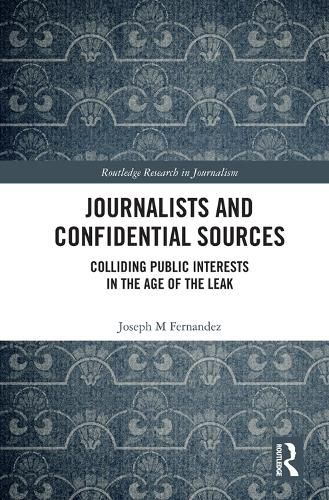Readings Newsletter
Become a Readings Member to make your shopping experience even easier.
Sign in or sign up for free!
You’re not far away from qualifying for FREE standard shipping within Australia
You’ve qualified for FREE standard shipping within Australia
The cart is loading…






Journalists and Confidential Sources explores the fraught and widespread reliance by journalists on anonymous sources, whistleblowers, and others to whom they owe an obligation of confidentiality. It examines the difficulties afflicting such relationships; analyses the deteriorating right to know and freedom of expression frameworks; and explores solutions and reforms.
The book discusses key Australian and international source protection ethics rules, statutes, court cases, law enforcement actions, and case studies. It highlights weakness in journalists’ professional practice codes governing confidentiality obligations; discusses inadequate journalistic appreciation of the importance of establishing clear terms and conditions underpinning confidentiality obligations; and identifies shortcomings in the law governing source protection. The book argues that despite source protection being widely recognised as an important ideal, source protection is under sustained assault, thereby undermining public access to information, and democracy itself. The work focusses on Australia but takes into account source protection in the United Kingdom, the United States, Canada, and New Zealand.
This timely contribution to the global discussion on the subject will greatly interest journalists, scholars, educators, and students especially in the areas of media law and policy, journalism, media and communication studies, and public relations; the legal fraternity; and anyone who communicates with journalists.
$9.00 standard shipping within Australia
FREE standard shipping within Australia for orders over $100.00
Express & International shipping calculated at checkout
Journalists and Confidential Sources explores the fraught and widespread reliance by journalists on anonymous sources, whistleblowers, and others to whom they owe an obligation of confidentiality. It examines the difficulties afflicting such relationships; analyses the deteriorating right to know and freedom of expression frameworks; and explores solutions and reforms.
The book discusses key Australian and international source protection ethics rules, statutes, court cases, law enforcement actions, and case studies. It highlights weakness in journalists’ professional practice codes governing confidentiality obligations; discusses inadequate journalistic appreciation of the importance of establishing clear terms and conditions underpinning confidentiality obligations; and identifies shortcomings in the law governing source protection. The book argues that despite source protection being widely recognised as an important ideal, source protection is under sustained assault, thereby undermining public access to information, and democracy itself. The work focusses on Australia but takes into account source protection in the United Kingdom, the United States, Canada, and New Zealand.
This timely contribution to the global discussion on the subject will greatly interest journalists, scholars, educators, and students especially in the areas of media law and policy, journalism, media and communication studies, and public relations; the legal fraternity; and anyone who communicates with journalists.